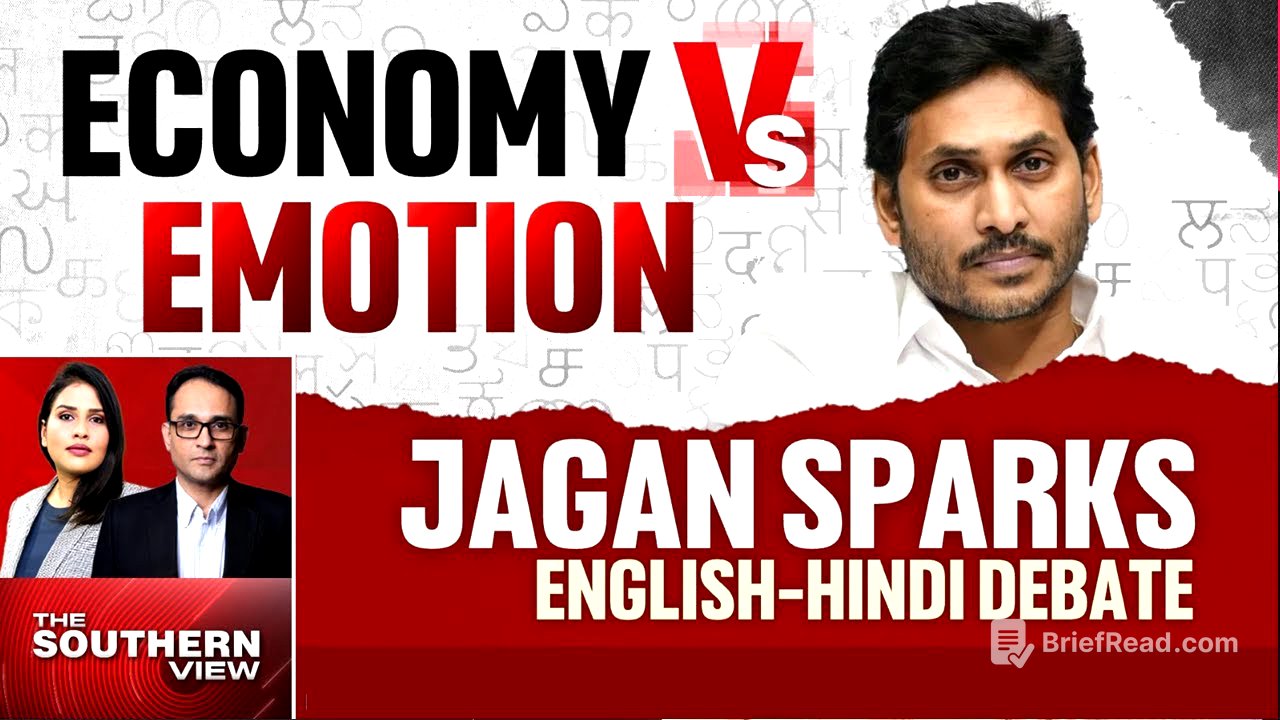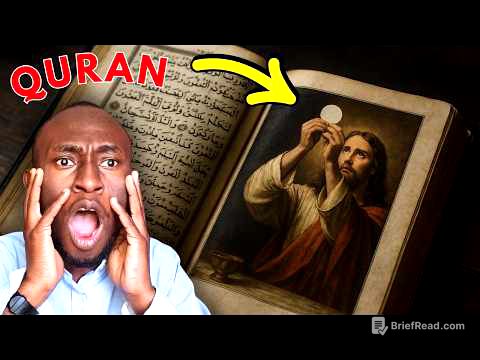TLDR;
This video discusses the language debate sparked in Andhra Pradesh after former Chief Minister Jagan Mohan Reddy advocated for prioritising English education. He views English as essential for future global success, particularly for first-generation learners. This stance contrasts with other politicians who support Hindi, igniting a discussion about linguistic identity, educational opportunities, and potential north-south divides. The panel explores the political implications of promoting English, the importance of mother tongues, and the complexities of a three-language policy in India.
- Jagan Mohan Reddy champions English as a language of opportunity.
- Other politicians support Hindi, creating a linguistic divide.
- The debate touches on the importance of mother tongues and a three-language policy.
Jagan Mohan Reddy's Pro-English Stance [0:00]
The video begins by highlighting Jagan Mohan Reddy's advocacy for English language education in Andhra Pradesh. He believes English is crucial for global opportunities and should be prioritised, especially for students from rural government schools. While emphasising that Telugu will remain the cultural backbone of the state, he sees English as a necessary passport to success. This position has ignited a language debate within the state.
Political Reactions and Context [0:41]
The discussion expands to include the political context of Reddy's statement, noting that other politicians have expressed support for Hindi. This creates a contrast and highlights the political sensitivity surrounding linguistic identity, particularly in southern India. The panel questions the implications of a pro-English, rather than anti-Hindi, stance for Reddy's party and South Indian politics in general, which have often revolved around identity politics.
Arguments for English and Hindi [2:02]
Jagan Mohan Reddy's statement is presented, where he asserts the importance of English as a global language. He argues that fluency in English is essential for students in government schools to be competitive. He suggests that after establishing English as the medium of instruction, other languages, including Hindi, can be offered as optional subjects. He even mentions that his first language was Hindi.
Panel Discussion: Perspectives on Language Policy [2:47]
The panel guests share their perspectives on the language debate. One guest agrees with Reddy's position, while acknowledging the emphasis on mother tongue pride and the ongoing debate around the three-language policy. Another guest emphasises the pragmatic need for English as a global language for Indians, especially when communicating overseas. They also question why politicians who advocate for Hindi send their own children to English-medium schools.
National Education Policy and Linguistic Uniformity [5:25]
A political analyst discusses the National Education Policy, which privileges Indian languages and seemingly gives less importance to English. He suggests that a three-language policy (mother tongue, Hindi, and English) would be ideal, but questions whether North India is willing to reciprocate by learning a third language in addition to Hindi and English. He argues for a uniform effort across the country to promote Indian languages and addresses concerns that Hindi is sometimes seen as a symbol of North Indian domination.
Language as Opportunity and the Importance of Mother Tongue [7:44]
One of the panellists argues that learning multiple languages increases opportunities and broadens horizons. She shares her own experience of speaking multiple languages, including Hindi, and how it has benefited her. She stresses the importance of equipping children with a strong foundation in their mother tongue, as well as other languages. The discussion shifts to whether the debate is about Hindi versus regional languages or about the divide between the rich and poor, with language proficiency potentially linked to socioeconomic status.









